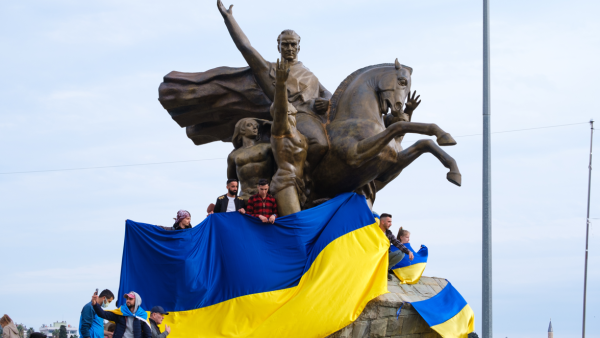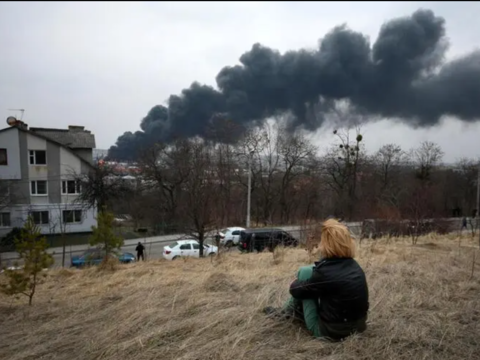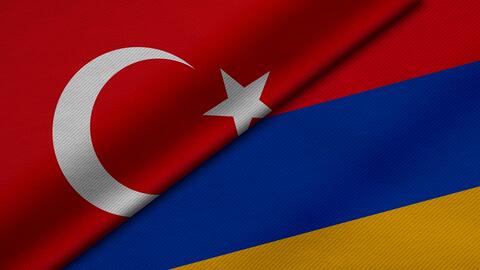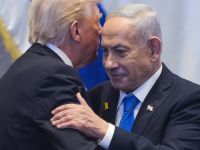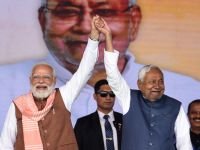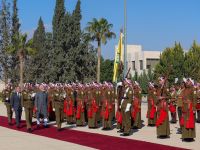By Farzad Ramezani Bonesh
The Ukraine War, or Russian military invasion of Ukraine, began on (February 24, 2022). But a series of factors, such as Russia's failures in Ukraine and war and military casualties, have virtually perpetuated the crisis.
In fact, it seems that Ankara did not rule out the possibility of a full-scale war between Russia and Ukraine. However, as the conflict continues, the Ukraine crisis has become one of the most important issues in Turkish foreign policy. In this regard, it seems that Ankara is pursuing the following priorities and approach in the Ukraine crisis.
Avoiding the rising tensions with Russia
In recent years, despite differences between Turkey and Russia in regional crises, relations between the two countries have not been affected. As, cooperation in military and defense industries, purchase of Russian S400, nuclear power plant, extensive foreign trade, continuous political and diplomatic consultations, etc. has been expanded.
Russia is one of the main exporters of goods such as wheat and gas, and etc. Turkey and its economy is heavily dependent on the Russian economy. Now, Ankara does not want to harm hundreds of Turkish companies operating in Russia, millions of Russian tourists in Turkey, the operation of the Turk Stream 2 gas pipeline, and so on. In this situation, Turkey tries to act in such a way that the differences between Russia and Turkey on different fronts in Syria, the Caucasus and the Nagorno-Karabakh region, etc., do not be intensified.
In another dimension, Russia has a strong army. For years, Russia has focused its efforts on strengthening its military forces around the Black Sea. In the meantime, any escalation of political, military-security and diplomatic tensions between Turkey and Russia will effectively make Ankara one of Moscow's enemies. This has serious consequences for Turkey.
Preservation of Ukraine
Ukraine has geopolitical, geostrategic, political, economic, cultural and even nostalgic importance for Turkey. In recent years, Turkish exports to Ukraine have almost doubled. The investment and operation of about 700 Turkish companies in Ukraine, the travel of more than 2 million Ukrainians to Turkey, the expansion of defense and military cooperation and the hope for free trade and the increase in bilateral trade value to $ 10 billion a year have been important parts of bilateral relations. At the same time, Turkey does not want the Crimean Tatars to be harmed by the conflict.
In the current situation, the purely Russian identity of Ukraine is a threat to Turkey. Therefore, Turkey supports the territorial integrity and sovereignty of Ukraine and does not recognize the annexation of Crimea. However, since in a long battle without a definitive conclusion, Ukraine will be the main loser, Turkey also does not want to act in a way that satisfies all or a significant part of Kiev's demands in the Ukraine war. Ankara is also likely to try to use the card of Ukrainian military achievements in Moscow's willingness to negotiate peace.
Balance between national interests and commitments to NATO
In recent years, Turkey has been constantly striking a balance between national security interests and its commitments to NATO. Turkey does not want to turn the Black Sea into a Russian lake, and wants NATO to pay the costs of balancing the situation at sea.
Aside from some military aid, such as the US military aid package to Ukraine, the powers are reluctant to intervene directly in the Ukraine war. While actors and organizations such as the United Nations, the G7, NATO, the European Union, and other Western or Asian countries have limited their attention to condemning Russia's actions, stopping the use of force in Ukraine, or providing minimal support to Ukraine, Turkey does not want to be the first pretender of supporting Ukraine.
If Russia succeeds in capturing the southern coastline of Ukraine, it will be close to regaining control of the Black Sea. In fact, Ankara fears Russian domination of the Black Sea, and considers Russia's invasion of Ukraine unacceptable. But it knows that variables such as the state of readiness of Russia's nuclear power, the risk of civilized war, the risk of proxy war, the refugee crisis can expand the situation and the consequences of the Ukraine crisis. Turkey prefers its own interests to its commitments to NATO, and the risk of global consequences of the war in Ukraine has forced it, by following the German model, to think more of its own interests than NATO.
Bilateral interaction and insistence on mediation
One of Turkey's top priorities in the Ukraine crisis is to strengthen dialogue.In February, Turkey invoked the 1936 Montreux Convention to close the Bosphorus to wartime warships. But Turkey does not want its approach to the 1936 Montreux Convention and the Straits to be considered one-sided action. In this regard, Turkey has promised Moscow and Washington that it will not allow the Istanbul Canal to become a war zone.
Ankara also does not want Russia to create more gaps between Turkey and the West. And also does not comply with Ukraine's demands. If NATO intervenes directly in the Ukraine crisis, Turkey will have to comply, which will come at a heavy cost for it. Therefore, it will be more beneficial for Turkey to play a mediating and innovative role in ending the crisis. In fact, by pursuing a policy of 'positive balance” in the Ukraine crisis, Turkey initially made efforts in the March negotiations. But it was largely fruitless.
In fact, Turkey's diplomatic efforts to establish a safe passage for civilians, to provide humanitarian assistance, to host ceasefire talks with negotiators, and to negotiate with leaders and regional and global actors continue.
However, despite negotiations being suspended or reached a stalemate by events such as the sinking of a Russian ship, they have been virtually suspended, and there is little hope of a stop the war. Turkish President Recep Tayyip Erdogan has renewed his proposal for a summit of leaders in Turkey to end the war. From this point of view, the Istanbul talks to achieve peace in Ukraine are in everyone's interest.
Reducing the threats and bad consequences of the Ukraine crisis for Turkey
Just as the complete cessation of Russian gas supplies to Europe is detrimental to Gazprom and Russia, sanctions and war will have dire consequences for inflation, increased financial market volatility, monetary policy, and the supply chain. In the meantime, these effects on the current economic crisis, inflation, national currency, trade, foreign tourism (more than a quarter of which is from Russia and Ukraine) are negative in Turkey. Also، Turkey relies on Russia for half of its gas needs. Rising challenges and energy prices are also putting pressure on the Turkish economy.
Although Turkey has not joined the Western sanctions on Russia, the consequences of the sanctions and the war in Ukraine in the short and long term have a great impact on the Turkish economy, and Turkey must find a way to solve it. Turkey, meanwhile, fears Ankara could be forced into a full-blown conflict between Russia and the West - along with NATO. This will cost Ankara much more.
Also, in imposing cooperation with the West on Turkey, Ankara does not want confrontation with Moscow in various political cases to have significant consequences for Turkey. In addition, given the sharp criticism of opposition parties inside the government in Turkey, Ankara is trying not to let the Ukraine crisis be a negative factor in next year's elections and reduce the ruling party's vote.
Gaining new opportunities
Certainly, in addition to the threats, new opportunities have been or will be provided for Turkey in the Ukraine crisis. These opportunities include increasing the possibility of exporting some Turkish military goods, the possibility of Turkish companies being present after Western companies leave the Russian market, playing the role of an economic mediator in Russia-West relations, playing a more active international role, overshadowing the domestic crisis and remittances, and affecting of Domestic economic problems by the Ukraine war. Also, while trust between the security services in Washington and Ankara is near zero, Turkey hopes to improve political and military relations with Europe and the United States by playing a key role in the Ukraine crisis.
Vision
With the volume of weapons, money and manpower coming to Ukraine from all over the world, there is no hope of ending the war in the near future. However, Turkey's approach in the current situation is to reduce the scope of short-term and long-term threats and increase potential opportunities and benefits. In fact, the longer the war lasts, the more threats it will pose to Turkey, so it seems that bilateral interaction and insistence on mediation and cessation of hostilities is Ankara's main choice.


